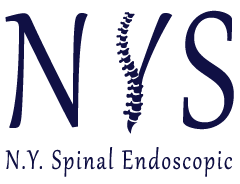WHAT CAUSES PINCHED NERVES?
The nerves in your spine pass through a narrow space in your spinal canal called the foramen. This is where your spinal nerves are at their most vulnerable for being pinched, compressed, or irritated by pressure. This can happen because of injury, trauma, or degenerative disc disease. A degenerative condition in the spine can cause the discs in your back to crack or tear, allowing the inner gel-like material to bulge out and put pressure on your nerves. Pinched nerves can also be caused by issues like improperly lifting heavy objects, repetitive motion injuries, or even bad posture.
Whatever causes it, once the nerve is pinched, it becomes inflamed. That’s what causes the neck or back pain. You might also experience pain in your extremities.
PINCHED NERVE SYMPTOMS
The most common pinched nerve symptom is a tingling or numbness. Sometimes the sensation starts out infrequent but occurs more often as time goes by. Other pinched nerve symptoms include:
- Weakness in your arms, hands, or legs
- Pain in your lower back that gets worse with physical activity or even when simply coughing or sneezing
- Sciatica pain that goes through your buttocks and into your legs and potentially into your foot
Severe pinched nerve cases can even cause weakness in your muscles, ultimately resulting in the loss of function. Untreated pinched nerves can result in issues such as carpal tunnel syndrome and peripheral neuropathy, not to mention incredible pain.
